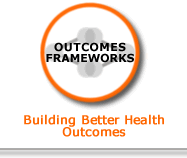Rationale
Rationale
An overview of the evidence undertaken as part of the programme of work for the mental health indicators for adults in Scotland [1] and a review of the evidence base for key mental health improvement messages [2] found that physical health is associated with mental health outcomes, quality of life for people with mental health problems and mental wellbeing.
There is review level evidence to suggest that participation in physical activity is positively associated with mood, emotion and psychological wellbeing and can produce positive changes in wellbeing through improved physical self-perception in adults.[3] There is review level evidence of an association between participating in physical activity and aspects of mental wellbeing in children and young people.[4]
Informed by evidence of effectiveness, SIGN 114 Non-pharmaceutical management of depression in adults recommended that structured exercise may be considered as a treatment option for patients with depression.[5]
There is evidence that physical activity is associated with improved quality of life for people with mental health problems.[1]
There is some evidence that an attitude towards sport as a healthy activity and participation in sporting activity is protective against suicidal behaviour among adolescents. A perception of positive health may be protective against suicide among females who have experienced sexual abuse.6
There is evidence of an association between alcohol use and mental health problems although the direction of causality is debated [2] and evidence of an association between substance misuse and mental health problems.[2]
Substance misuse increases the risk of suicide attempt and death by suicide. The risk associated with opioid use disorders and mixed intravenous drug use is greater than for that for alcohol misuse. The risk of suicide from alcohol misuse is greater among women than men.6
Source:
-
Parkinson J (2007). Establishing a core set of national, sustainable mental health indicators for adults in Scotland: Final report. NHS Health Scotland: Glasgow.
-
Friedli L, Oliver C, Tidyman, M & Ward G (2007). Mental health improvement: evidence-based messages to promote mental wellbeing. NHS Health Scotland: Edinburgh.
-
Taylor L, Taske N, Swann C & Waller S (2006). Public health interventions to promote positive mental health and prevent mental health disorders among adults: Evidence briefing. NICE: London.
-
Whitelaw S, Swift J, Goodwin A & Clark D (2008). Physical activity and mental health: the role of physical activity in promoting mental wellbeing and preventing mental health problems: an evidence briefing. NHS Health Scotland: Edinburgh.
-
SIGN (2010). SIGN 114: Non-pharmaceutical management of depression in adults: A national clinical guideline. SIGN: Edinburgh.
-
McLean H, Maxwell M, Platt S, Harris F & Jepson R (2008). Risk and Protective Factors for suicide and suicidal behaviour: A literature review. Scottish Government Social Research, Edinburgh.
-
See topic specific logic models (tobacco control, alcohol etc) for additional evidence.
|



